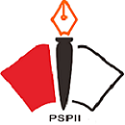Peranan Guru Agama Islam dalam Membelajarkan Siswa Menjadi Manusia yang Berakhlak Mulia
Abstract
Al-Quran and al-ahadith reveal a lot about the personality of morality, both in the context of the vertical dimension of the relationship with Allah SWT. as well as horizontal relationships between men and their environment. As a matter of research, feedback main theories in both these sources is needed. That is why morality is defined into the operational level that can be observed from the symptoms appear.
This study focused on the role of religious teachers of Islam in teaching students to become human morality in SMPN 29 Bandar Lampung, includes objectives to be achieved, the material presented, the role played and the methods used Islamic religious teachers, motivated students to become a man of morals noble, as well as changes in behavior and attitudes that result from learning morals in school, using a qualitative approach, in which the learning process and results are described, interpreted, and discussed to find the essence of meaning.
The series of answers to the problems above, a finding which is very beneficial for Islamic religious teachers to understand, appreciate and carry out its function as educators so that the learning process morals students they can do in a situation education comprehensively in order to produce a human figure that is more potent noble.
Keywords
Full Text:
PDFReferences
Abdurahman, I.J. (1967). Al-Jami’us Syaghir Fil Hadits Basyirunnazir. Al-Qahirah : Darul Kaatib Al-„Arabi Athhthoba‟ Atu Wan Nasyir.
Al-Ghazali, M. (1986). Akhlak Seorang Muslim. Penyunting : H. Moh. Rifa‟i. Bandung : Wicaksana
Al-Maraghi, A.M. (1963).Tafsir Al-Maraghi. Mesir : Cetakan ke-3 Juz I Musthafal Babil Halabi.
An-Nahlawi, A. (1996). Pendidikan Islam di Rumah, Sekolah dan Masyarakat. Penerjemah Shihabuddin. Jakarta: Gema Insani.
Daradjat, Z. et al. (1984). Psikologi Agama. Jakarta : Bulan Bintang.
Depag RI. (1994). Al-Quran dan Terjemahannya.Semarang : Karya Toha Putra.
Henry, N.B. (1952). The Fifty-First Yearbook of the National Society for The Study of Education Part I General Education.Chicago The University of Chicago Press.
Kay, W. (1975). Moral Education: Asociological Study of the Influence of Society, Home and School. London: George Allen &Unwin.
Mc Millan, J.H. & Schumacher,S. (2001). Research Education.New York: Longman.
Moleong, L.J. (2000). Metodologi Penelitian Kualitatif. Bandung : PT Remaja Rosdakarya.
Soelaeman, M.I.(1988). Suatu Telaah tentang Manusia-Religi-Pendidikan. Jakarta: Depdikbud Dirjen Dikti.
Suwarno. (1982). Pengantar Umum Pendidikan.Jakarta : Aksara Baru
Undang-Undang Republik Indonesia Nomor : 20 tahun 2003 tentang Sistem Pendidikan Nasional dan Penjelasannya. Jakarta : CV. Tamita Utama.
Sada, h. J. (2015). Konsep Pembentukan Kepribadian Anak Dalam Perspektif Al-Qur‟an
(Surat Luqman Ayat 12-19). Al-Tadzkiyyah: Jurnal Pendidikan Islam , 6, 104.
DOI: http://dx.doi.org/10.24042/atjpi.v7i1.1497
Refbacks
- There are currently no refbacks.
Copyright (c) 2017 Al-Tadzkiyyah: Jurnal Pendidikan Islam

This work is licensed under a Creative Commons Attribution 4.0 International License.

Al-Tadzkiyyah: Jurnal Pendidikan Islam is licensed under a Creative Commons Attribution 4.0 International License. Copyright © UIN Raden Intan Lampung. All rights reserved.








